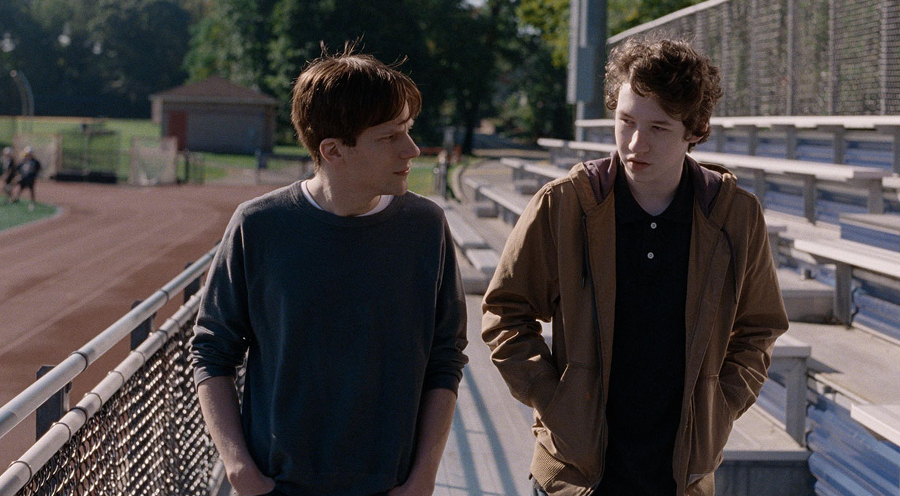Norwegian director Joachim Trier earned a lot of acclaim for his 2011 slice-of-life movie Oslo, August 31st. Critics across the globe found his observations struggling through life to be keenly observed. It’s no surprise so many actors lined up for his American debut.
But there’s a bit of an Emperor’s New Clothes effect here. Louder Than Bombs earned a ton of praise when it competed for the Palme d’Or at Cannes last summer. On paper, it’s got all the makings of a powerful drama. Unfortunately, it’s completely empty.
Love or hate his performance in Batman v Superman: Dawn of Justice, no one can deny Jesse Eisenberg’s range as an actor. He’s mostly chummy here as Jonah, a professor who’s disappearing from his responsibilities as a new dad. He goes to visit his own dad Gene (Gabriel Byrne) and brother Conrad (Devin Druid) in upstate New York to help put together a tribute to his photographer mother (Isabelle Huppert), who died three years earlier in a car accident.
What could have been an intense depiction of how one family deals (or fails to deal) with grief, Louder Than Bombs does itself no favors by constantly shifting timeframes and perspectives. There are flashbacks within flashbacks, vivid dream sequences and overlapping conversations.
Gene begins an affair with Conrad’s teacher (Amy Ryan), which strains their relationship even further. Conrad retreats further into his world of video games and troubled thoughts, though he might cool down if he could catch the attention of Melanie, who’s far less intelligent but far more popular than Conrad.
Lots of threads dangle with no clear resolution. Life may be like that sometimes, but here it comes off as lazy screenwriting. Jonah reconnects with his ex-girlfriend, Conrad has the potential to explode violently and Gene confronts an old colleague (David Straitharn) about his late wife. All three wonder whether the woman who meant so much to them might have taken her own life.
There are occasionally some great scenes, but they never add up to much of anything. Like too many movies, the real tragedy is the missed potential.

